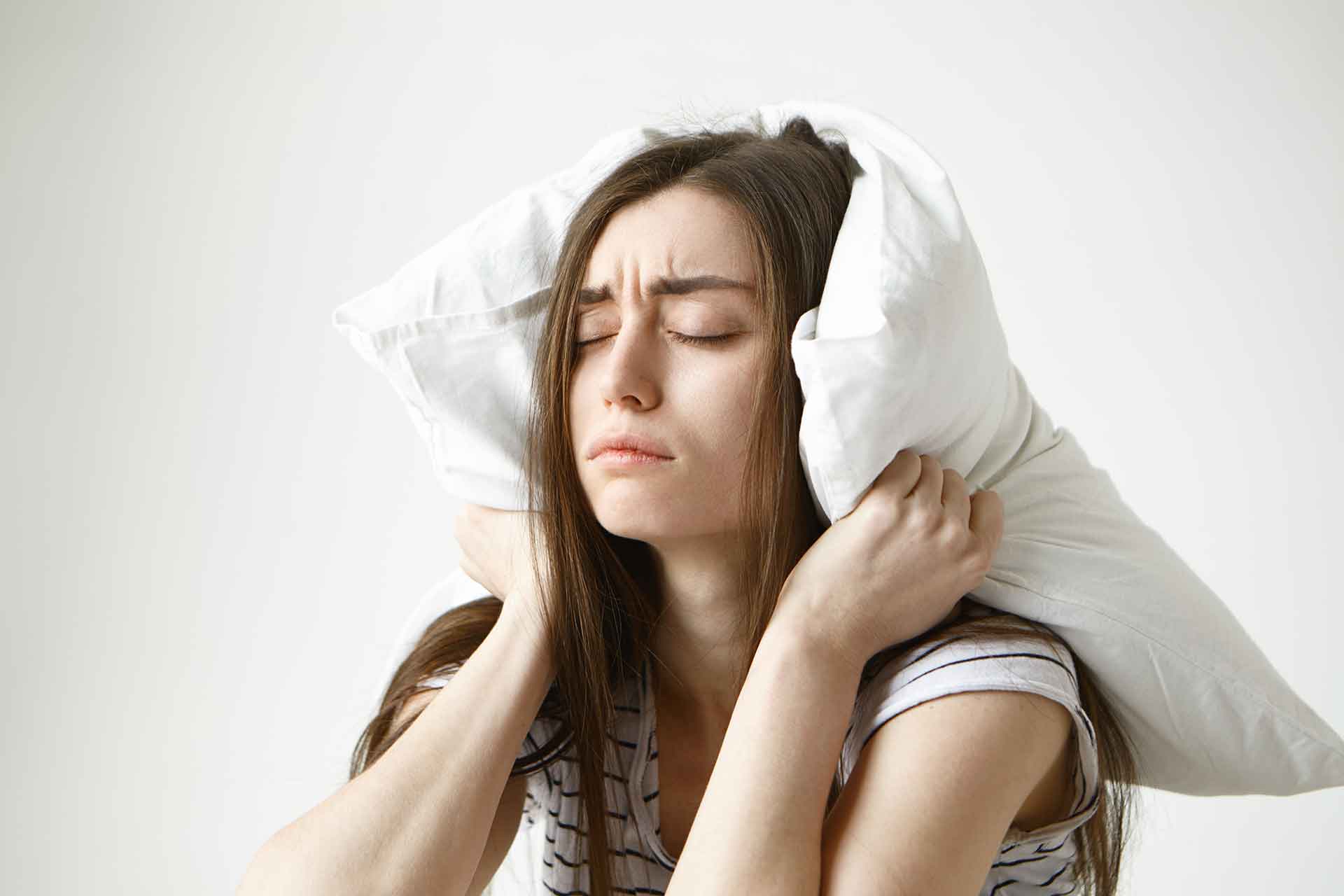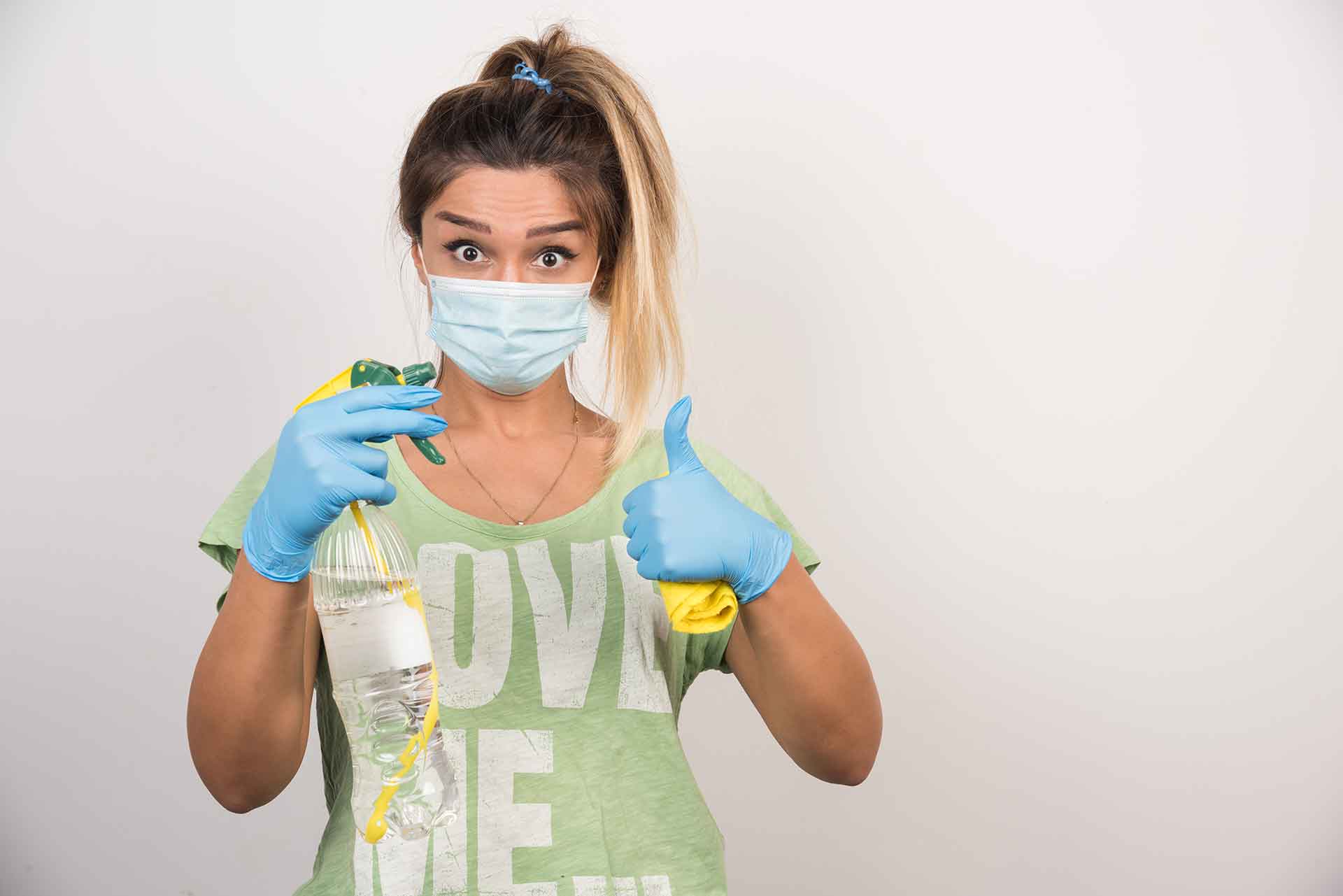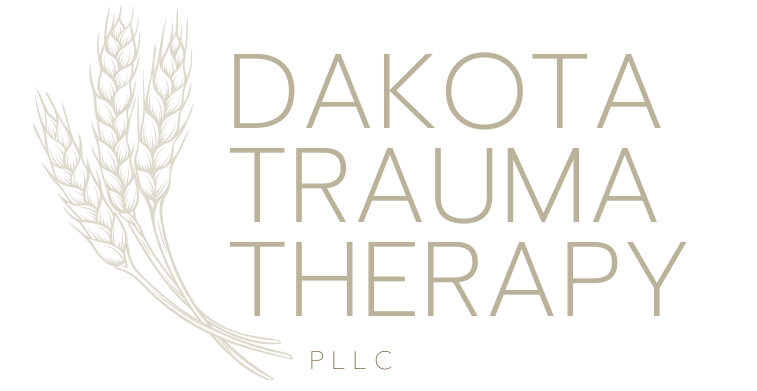While bringing a child into the world is doubtlessly the most pleasant feeling for a mother, it originates great emotional upheaval at the same time.
Therefore, it is understandable to have a certain degree of anxiety if you are a new mom who is now laden with enormous responsibilities.
However, excessive worrying should not be considered normal. Frequently confused with postpartum depression and baby blues, postpartum anxiety is an entirely different mental condition.
Studies suggest that the prevalence of postpartum anxiety is 5%-12% (1) which is equal to general anxiety prevalence among women. It befalls with or without depressive symptoms.
Postpartum anxiety is better known as the feeling of restlessness and persistent apprehensions regarding the newborn within weeks of delivery (2).
Expecting mothers are primarily aware of postpartum depression and baby blues and how it could affect them, thus are somewhat prepared for it mentally. On the other hand, postpartum anxiety is outright neglected by a large population despite possessing more chances to occur than postpartum depression (3).
Carrying the baby for nine whole months frames the mindset of a mother in a way that she thinks the baby might be in danger in her absence. Being concerned for the neonate is a part of the mother’s natural heightened awareness developed during pregnancy.
It is equally evident in other living species, especially in mammals. Have you ever crossed a new-cat-mom and escaped her piercing gaze? That’s what happens when her instincts tell her to beware of humans and literally any approaching threat to her children.
In the same way, women develop strong maternal instincts either during pregnancy or after delivering the baby (4). It’s all-natural until it becomes overwhelmingly strenuous when the mother couldn’t leave her baby even for a brief period.
Furthermore, she remains plagued so much that her health starts debilitating. It is when postpartum anxiety (5) kicks in.
Postpartum mothers grapple with constant negative thoughts such as baby falling from a height, smothering under the blanket, losing the baby to death, and other horrible fears.
It is essential to differentiate postpartum anxiety from other forms of stress coping mechanisms to prevent it from growing into more complex mental disorders such as OCD, GAD, etc.
Here’s what you must know about postpartum anxiety!
Postpartum Anxiety .vs Postpartum Depression
Might sometimes be called a close cousin of postpartum anxiety (PPA), postpartum depression (PPD) often takes the lead when it comes to diagnosing PPA. While the signs may look closely related apparently, you can tell them apart by their manifestations.
Postpartum depression, a more widely understood disorder, is when the mother doesn’t consider herself competent enough to take care of her baby. PPD makes one feel guilty, hopeless, and entrapped in never-ending darkness.
A mother experiencing PPD manifests the symptoms of sadness, being tearful, feeling dejected, and disappointed in herself. In contrast, PPA is associated with the feeling of fear, intrusive thoughts, and obsessive urge of over vigilance, making the mother restless and irritable.
A mother with PPA constantly checks on her baby countless times and remains fearful with extreme trepidation.
Although PPA and PPD can be present in an individual simultaneously, they can show up separately as well (6–7). Psychotherapy can readily treat both of the postpartum mental health concerns.
Postpartum Anxiety vs. Normal Postpartum Worry
As explained above, it is a part of the mother’s instincts to worry for her newly born baby since the baby can’t exactly tell what he is feeling. New moms are naturally much more concerned with what their infant might be undergoing.
It isn’t worrisome; in fact, it is a favorable trait that keeps the mother proactive to prevent her child from any potential harm.
What separates postpartum anxiety from natural motherly worry is the overpowering emotion of fear of loss and upcoming calamity.
You can easily distinguish between both by observing the behavioral patterns. A mother with PPA fears irrationally over trivial details that do not usually require attention.
For instance, she would assume that her baby’s growth is not advancing at a reasonable pace or gets overly worried as the baby cries. On the contrary, normal postpartum worry elicits imperative responses to real threats, not based on negative beliefs.
Symptoms of Postpartum Anxiety
Following are some symptoms peculiar to postpartum anxiety. It is, however, crucial to bear in mind that worrying to a certain extent is expected in new moms. Based on its wide-ranging effects, postpartum anxiety exhibits symptoms of both psychological and physical nature.

Psychological symptoms
- Perpetual fret and nervousness which is uncontrollable.
- Fearing an unrealistic mishap that is pretty unlikely to happen.
- Disrupted sleep due to recurring ruminations about meeting an accident.
- Overly cautious about the baby
- Not trusting even the closest relatives when it comes to looking after the baby.
- Continuously checking the baby monitor while at work.
- Sudden picture of perceived accidents flashes before vision inducing adrenaline rush and racing thoughts.
Physical symptoms
Physical symptoms are somewhat similar to those experienced in other usually occurring anxiety disorders.
- Nausea
- Vomiting
- Fatigue
- Clammy palms
- Chills
- Shivering and trembling of limbs
- The sensation of heart-pounding
- Increased palpitations
- Inability to move
- Rapid breathing
- Shortness of breath
- Chest pain
Panic attack symptoms
- Erratic breathing with a feeling of being choked to death.
- Tightness in the throat.
- Numbness in upper or lower limbs (or both)
- Extreme fear of losing your baby (or your own life)
- Vertigo (dizziness)
Causes of Postpartum Anxiety
There are no definite causes of postpartum anxiety, and no clear evidence shows why some women develop it while others don’t.
It, however, happens as a consequence of many predisposing factors that make some women more vulnerable to PPA (8–9). Some of these factors are:
- Personality type
- Previous history of anxiety and depression
- Strong family history of anxiety
- Problematic current marriage (i.e., abusive partner)
- Psychosocial stress related to taking good care of the baby.
- History of previous miscarriages, stillbirths, or accidents.
- History of trauma.
- History of hormone-induced mood shifts
- Interrupted sleep patterns

Common Anxiety Disorders Stemming from PPA
The most common postpartum anxiety-related disorders are discussed briefly in this section (10).
Postpartum Generalized Anxiety Disorder
Postpartum women are more likely to develop GAD than any other form of anxiety. During a study, women experiencing postpartum GAD reported experiencing more distress, avoidance, self-consciousness, sexual fear but not a dysfunctional sexual relationship. (11)
Studies suggest then moms with GAD fixate on their negative thinking so much that they struggle to develop a healthy bond with their infants. (12)
Postpartum Panic Disorder
Panic disorder is characterized by an abrupt and recurring panic attack out of the blue putting the sufferer through extreme uneasiness (13). Whether or not previously experienced a panic attack, postpartum mothers are at stake in developing panic disorders.
Postpartum Obsessive-Compulsive Disorder
Another most common form of anxiety that postpartum women experience is an obsessive-compulsive disorder. OCD is elaborated as a disorder of repeating patterns and intrusive thoughts.
Postpartum moms are at high risk of developing OCD, and they keep thinking about how to save the baby from being harmed by them. (14)

Postpartum Post Traumatic Stress Disorder
PSTD is characterized by an immense feeling of fear and helplessness followed by a traumatic event. Postpartum women are at the risk of PSTD because giving birth is no less than a trauma for some.
The feeling of intense pain and loss of self-control are two critical reasons for seeing childbirth as a traumatic event (15).
How does Postpartum Anxiety Feel Like? PPA moms’ Reddit Confession!
Let’s get an insight into the life of some real moms who’re dealing with postpartum anxiety!
Intrusive thoughts
Since having my baby and going solo on maternity leave, I’ve felt my anxiety increase in ways that I think are beyond normal new mom feelings. It started with intrusive thoughts, which got more intense and intrusive as the weeks went by (and are so irrational and terrible they are not worth repeating). Now I’m noticing it spike right at bedtime, and it comes with physical symptoms like a racing heart and shortness of breath (16)
Irrational assumptions
Now that my baby is a bit older, I look back and realize that what I was going through was NOT normal. The horrific thoughts I had, I can’t even talk about. It was like living in a nightmare. I seriously could barely function. I couldn’t even leave the house, and if I did, I would clutch my baby’s stroller so bad and start trembling if anyone even got near him. I couldn’t even let my family hold him. The only place I felt even somewhat safe was lying with him in my bed, and I would just cry and lay awake with anxiety about “what if the water heater blows up” “what if someone breaks in” “what if there’s a fire (17)
Irritability
I’m almost certain I’m dealing with postpartum anxiety going on 5 months now. I’ve had no problem bonding with my baby, but I’ve been an anxious wreck since he was born. At first, I thought it was just normal new mom stuff, but after frequent meltdowns and just this never-ending feeling like everything is wrong, I had to admit that I might need help. (18)
Overly concerned with baby’s eating patterns
I gave birth 2 weeks ago, and I can’t seem to get rid of feelings of impending doom, mostly “what if something happens to my baby?” For the first week, I wasn’t making enough milk, and he lost 13% of his body weight. I was really down about that even after we added formula (19)
Disrupted sleep due to crazy speculations
I have a 6-month-old little girl who is just awesome, but I worry about her constantly! According to my husband, a handful of times throughout the week when we are sleeping, I wake up in the middle of the night in a panic, thinking something is wrong with the baby. I think she is in the bed under the covers and can’t breathe (she sleeps in her bassinet, not in our bed) and wake him up to help me find her (20)
Diagnosis of Postpartum Anxiety
Before jumping onto the treatment of postpartum anxiety, it is vital to have it diagnosed in the first place. The diagnosis of postpartum anxiety is the most crucial step to seek its treatment, as most women do not display their fears.
Either owing to the psychosocial pressure or self-perceived belief that revealing their feelings will make them look incompetent among people, women don’t seek help. Even if they do, their symptoms are falsely assumed as postpartum depression, and they are left undiagnosed.
The best thing you can do to avoid being misdiagnosed is to book an appointment with your therapist beforehand. Get your postpartum checkup scheduled with your therapist within six weeks of your child’s birth and express your fears before him.
Treatment Options for Postpartum Anxiety
Since most symptoms of postpartum anxiety are the same as those presented in other anxiety disorders, the treatment options are almost alike. Postpartum anxiety is managed both by psychotherapy and medications.
Psychotherapy – Cognitive Behavioral Therapy
The first choice of treatment for PPA is psychotherapy. Your therapist may incorporate cognitive behavioral therapy to correct your negative thought process. For instance, if you keep yourself up all night with a fear of losing your baby.
In that case, your psychotherapist will better your cognition and instill rational thought process into your brain by teaching you some coping tricks.
So you will be able to calm yourself at night with the thought that your baby is enjoying his peaceful sleep and dreaming of angels.
Medication
Treatment with medicines comes second while seeking recovery from PPA. In severe cases, therapists might prescribe you SSRIs, NSSRIs, benzodiazepines, tricyclic antidepressants, or buspirone. Nursing mothers are frequently prescribed SSRIs since it is the most evidence-based antidepressant for PPA treatment (21).
How to Help Someone with Postpartum Anxiety?
Enduring postpartum anxiety is indeed exceptionally draining, but seeing someone you love putting up with such anguish is not easy as well. If someone around you is going through postpartum anxiety and you want to help them get through this challenging phase of life, be sure you are taking the proper care.
Be with her
After the arduously painful childbirth and persistently upheaving emotions, she needs someone to be with her. Especially with postpartum anxiety, the mother’s mind relentlessly runs unless there is someone to calm her down.
Being caring support is probably the best help you can offer to the new mom.
Help her make the right food choices.
Non-stop worrying on even the child’s most trivial details makes the mother scatterbrained. So, help her choose healthy foods to eat over potentially harmful ones. Protein-rich foods, including milk, yogurt, beans, cheese, and fish, are beneficial for rapid healing.
Tune with the baby
While helping her cope with anxiety, try spending some time with the baby as well. It will ease the tension of the new mother, and she will be able to trust you with their baby.
Encourage the mom for psychotherapy
Seeking professional help in postpartum anxiety is as necessary as in other mental health disorders. Thus, understand that you can’t always help the mother with her overwhelming feelings, and psychotherapy is essentially significant.
Educate yourself and the new mother regarding the benefits of psychotherapy in PPA.
Accompany her to the therapist
Take her to the clinic with you and take sessions with her to grasp better coping strategies for PPA as a caregiver.

Be a good listener
A person with anxiety fears expressing her deep-felt emotions with anyone around, which further worsens the situation. The core responsibility of a caregiver is to make the PPA mother comfortable and let her communicate her fears.
Practice mindfulness with her
Telling an anxious mother to practice specific exercises on her own is impractical since her cognitive functions are much distorted. Yet, you can get her on track by accompanying her in such mindfulness exercises.
Hire a caregiver
At times, when she needs more emotional support, you can hire a trustworthy caregiver for the mom and the baby and spend some peaceful time with her.
Help her build a support system
Mothers going through postpartum anxiety often develop avoidance behavior and social anxiety. They dread meeting people out of the fear of being judged as an irresponsible mom. Make her face the fears and get over them by arranging soft meet-ups with friends and family.
Final Thoughts
Postpartum anxiety goes misdiagnosed or undiagnosed frequently due to the scarcity of pragmatic research and analysis.
As a result, despite being the most commonly occurring mental health disorder after childbirth, many women don’t seek professional help. If left untreated, postpartum anxiety may result in much worse complications, including:
- Troubled mother-infant attachment
- Increased probability of infant abuse
- Retarded social and cognitive growth of infants
- Breastfeeding difficulties (22)
While these risk factors are real and might also occur together, the best part is, you can still be fully treated. Baby blues are well-known and subside as time passes, but postpartum anxiety doesn’t heal independently. You need the right set of therapy to get over postpartum anxiety effectively.
Everything is under control when you are in the right hands. Find a reliable well-versed psychotherapist and book your session within the first six weeks of childbirth to avoid any possibility of developing postpartum anxiety.

